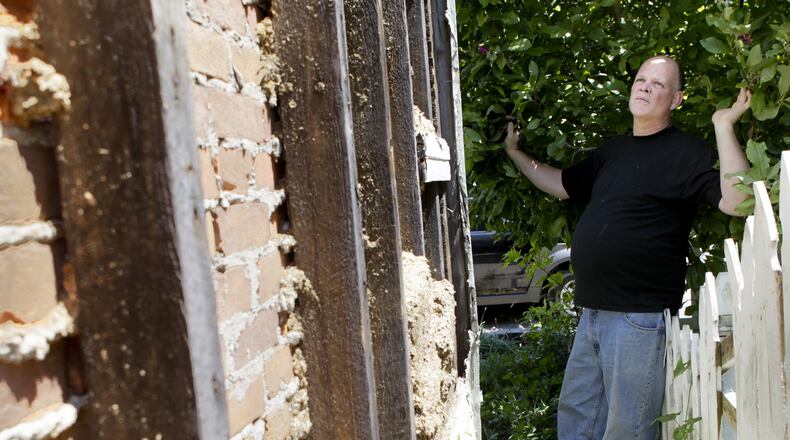Continuing coverage
The Dayton Daily News first reported the role property owner Jan Singleton has played in Montgomery County’s growing problem of vacant and abandoned structures on July 1. The story revealed 54 of Singleton’s 68 properties are on county’s abandoned properties list, more than any other landowner.
Singleton also owes Montgomery County $329,017 in unpaid taxes on those properties.
During the last five years, the city of Dayton has issued Singleton 18 citations for property-code violations, 10 repair orders and 16 warning notices. Eight of his houses were boarded up and the city took him to housing court on 13 cases
The Montgomery County Treasurer’s Office has foreclosed on at least five of Singleton’s properties for back taxes. Another dozen ended up in tax lien sales.
A Dayton man with a long history of housing code violations on dozens of ramshackle properties began serving a 60-day jail sentence Wednesday, in the wake of a Dayton Daily News investigation.
The July 1 Daily News report looked at the growing problem of vacant and abandoned properties in Montgomery County and found Jan Singleton owned 54 of them, far more than any other landowner.
On Monday, Singleton, 48, pled “no contest” to failing to obey the order of a housing inspector in Dayton Municipal Court for code violations at 21 Johnson Street in Dayton, a third degree misdemeanor.
“The bottom line is, we’re happy to see someone who has been a repeat offender being held accountable,” Stephanie Cook, chief prosecutor for the city of Dayton said. “He knows how to work the system. Finally, the system has said, ‘that’s enough.’”
The “no contest” plea was not an admission of guilt, Cook said. It does mean Singleton didn’t contest the facts of the case presented by the prosecutor. He was sentenced by Judge Deirdre Logan to 60 days in the Montgomery County Jail, a $500 fine, plus $111 in court costs.
Since the beginning of the case, the city Housing Inspection Department submitted photo evidence and testimony that showed little or nothing was done to the structure for years, Tyrone Sampson, Dayton’s senior housing inspector in charge of court duties said.
“We hope that this will drive home the message to individuals that this is unacceptable,” Sampson said.
Singleton’s attorney of record, Derrick Strahorn, did not respond to a request for an interview by the Dayton Daily News.
For 20 years, Singleton has been buying run-down properties with an eye toward developing them one day. He has said he’s performing a public service, acting as a neighborhood savior. But Dayton officials, neighborhood activists and local property owners had a different view. They said Singleton was destroying neighborhoods, not building them up.
During the past five years, the city of Dayton has issued Singleton 18 citations for property-code violations, 10 repair orders and 16 warning notices. Eight of his houses were boarded up and the city has taken him to Dayton Municipal Court on 13 cases. He owes $4,747.20 in outstanding fines and court costs related to those cases.
Singleton called most of his properties “walk-aways” that he discovered by researching run-down homes that had been foreclosed on and sent to sheriff’s sale. He said he approaches homeowners and offers to take the properties off their hands. Once he targeted a property, Singleton sends the owner a letter along with a quitclaim deed.
A quit-claim deed transfers the interest the current owner has in a property without making warranties about rights that others may have in it. By keeping the ownership murky, Singleton effectively circumvents the system, Sampson has said.
Singleton appeared in housing court at 8:30 a.m. Wednesday on a minor misdemeanor environmental charge for trash in the yard at 827 Clover Street. Afterwards, he was escorted to the Montgomery County Jail to begin his sentence. During the next four weeks, he must report to jail three days a week. Beginning Aug. 15, he will serve the balance of his sentence consecutively.
Sampson said any future citations issued to Singleton for issues such as tall grass, trash or structural problems will be 4th degree misdemeanor charges, with maximum penalties that include jail time.
Cook said the jail sentence is not a victory, but more of a last resort.
“The real victory would be getting his properties cleaned up, because those places are still eyesores,” she said.
About the Author
